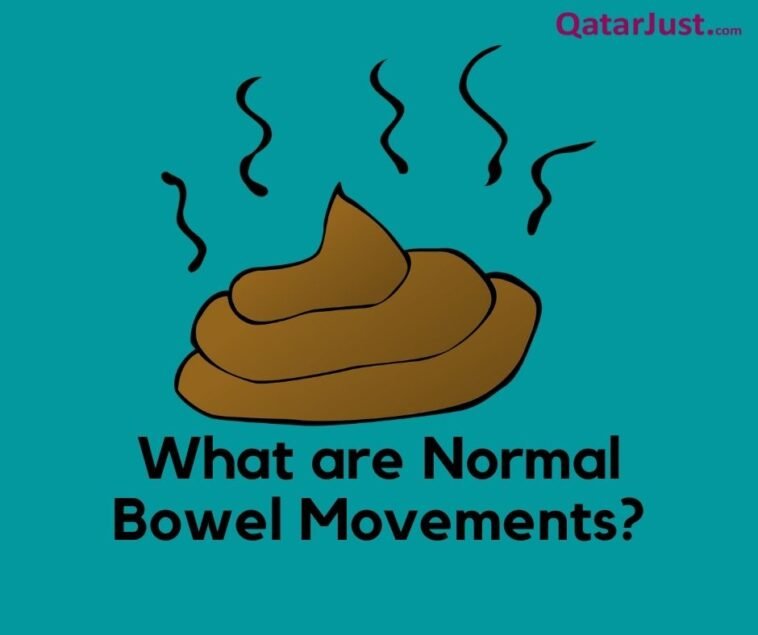Is it possible to have a normal bowel movement? Although doctors do discuss bowel movements, many people don’t know if their movements are “normal.”
In reality, there is no universal definition or description of a normal bowel movement. Instead of one “normal” type of bowel movement for all, there is a spectrum of what would be considered normal.
If a bowel movement seems out of range or if it has changed over time, bring that up at the doctor.
Normal Bowel Movements
According to popular belief, a healthy gastrointestinal system requires bowel movements daily. Nevertheless, this does not apply to everyone.
Normal bowel movements could range from a few times a day to a few times a week. There is no hard-and-fast rule regarding what is typical because it varies from person to person.
A lack of daily bowel movements does not imply constipation. The fact that you have multiple bowel movements a day does not mean you have diarrhea. Defining constipation as hard, dry stool that is difficult to pass, and diarrhea as watery stool more than three times a day.
Diarrhea or constipation can occur in most healthy adults at some point, but you shouldn’t ignore a consistent change in bowel habits.
Constipation
About 2.5 million doctor’s visits each year are attributed to constipation. This condition is characterized by hard, dry, lumpy stools that are difficult or painful to pass, as well as bloating and discomfort.
Dehydration, inactivity, and low fiber intake can all contribute to constipation. Dehydration can be prevented by drinking enough water each day.
Getting 30 minutes of exercise most days of the week is recommended for overall health (even a brisk walk is better than no walking) and digestion. Diet must contain adequate fiber for stools to be soft, easy to pass, and painless.
Complications of Constipation
Constipation that occurs frequently in women and older adults is called chronic constipation. In addition to being uncomfortable, chronic constipation can cause other complications as well.
Anal fissure (tear of the skin in the anal canal) can develop when straining to pass stool. The stool can also become hardened and become stuck in the intestine, resulting in fecal impaction. An increasingly severe case might require hospitalization or a doctor’s visit.
An uncontrolled straining of the bowels, called rectal prolapse, can also cause the rectum to prolapse. It is possible to treat rectal prolapse at home; however, some cases may require surgery.
Diarrhea
The term diarrhea refers to loose, watery stools more than three times per day. Most adults suffer from diarrhea every few years, which lasts a day or two without treatment. There are several causes of diarrhea, including infection, medications, and food intolerance.
Consistency & Stool Colour
Although some people may have slightly harder or softer stools than others, bowel movements should be soft and easy to pass. According to general guidelines, a stool should generally be brown or golden brown, have a cohesive form, be similar to peanut butter in texture, and be similar in size and shape to a sausage.
A stool that differs slightly from this description does generally not cause alarm, especially if it is an isolated incident. In some cases, however, a bowel movement may be abnormal and could indicate a more serious issue.
They include:
- Blood in the stool- The condition could result from several causes, ranging from mild like hemorrhoids, to serious like colon cancer.
- Black or tarry stools- with a foul odor can be the result of eating certain foods, taking iron supplements, or possibly from internal bleeding high up in the gastrointestinal tract.
- Red or maroon stools- It may be caused by eating red-colored foods or by medical conditions like hemorrhoids, diverticular bleeding, colon cancer, or inflammatory bowel disease.
- Green Stool- Foods that contain green color, iron supplements, or shorter transit times in the colon can create constipation.
- Pale or colorless stool- This could be caused by bile salt deficiency (which results in brownish stool), antacids, recent barium enema testing, or hepatitis.
Please Subscribe Us to get updated with Qatar News, Saudi News, Kuwait News, UAE News, Health News, Iqama, Visa, Jobs, Banking and More



